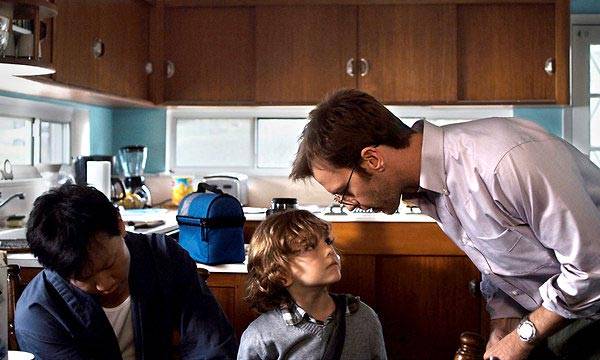
Joey Williams lost his first family very young. His parents died when he was a child. And he again lost his family in his teens, when his foster parents also died. And now, Joey’s lost a third family. His partner Cody is killed in an accident, and Chip, the son that he’s raised with Cody for five years, is taken away.
Six years ago, Cody was married, and he and his wife had Chip. When his wife died, while Chip was still a baby, and before he fell in love with Joey, Cody made a will granting his sister Eileen power of attorney, and he also specified that she’d have custody of Chip. Cody never changed his will, even after he formed a family with Joey. And when he dies, the laws in Tennessee are not on Joey’s side. From the hospital to the holidays to the courtroom, everyone joins together in keeping Joey and Chip from each other.

The most infuriating part of this is that Eileen pretends that this is what Cody would have wanted. It never occurs to her to straighten things out. She, instead, claims to have no choice but to take Joey’s home and child away from him. In one of the most tense scenes in the film, in which she’s telling a nonplussed, stunned Joey that she not only has control of the home he shared with Cody, but his family as well, she repeats, “He didn’t change the will. It’s what Cody wanted.” She knows it’s not what Cody wanted; she has to. But still, she does what she does.
Patrick Wang, the film’s writer, director, and lead actor is exquisite. Indeed, all of the acting in this film views like a documentary. In the Family is a lengthy film (almost three hours long). It takes its time to tell the story, and to illustrate the story. It gives us time to get to know these characters, get involved with them. Become invested. It’s calm; it’s still; it’s quiet. It’s also one of the most compelling, moving, kind films I’ve seen this past year. It appeals to our natural inclination for fairness and our desire to be just. If Joey succeeds in appealing to this aspect of his sister-in-law’s nature, maybe he can make his way back into his son’s life.
And perhaps a film like In the Family can appeal to our society’s better nature. And maybe then Tennessee will do away with its anti-equality laws, and maybe our country can do away with DOMA, so the kind of injustice found in this film will finally stop happening everywhere.
In the Family will screen at Ebertfest on Thursday, April 18, at 4:00 p.m.








